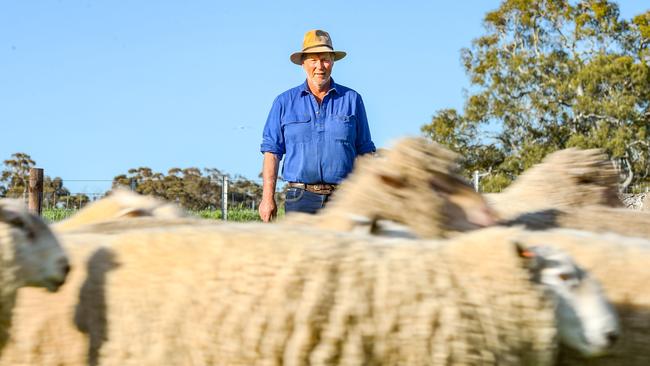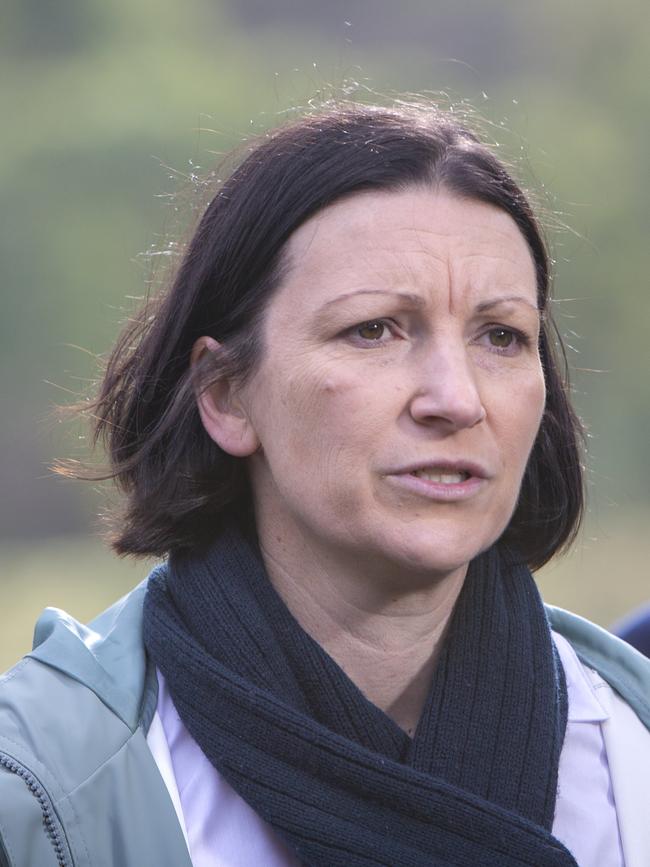Farmers plead for state government help as unprecedented conditions threaten South Australia’s agricultural industry
Farmers say current conditions are the worst they’ve seen in 60 years with some selling stock. Meanwhile, others are resorting to handfeeding or preparing to not harvest a crop at all.
SA News
Don't miss out on the headlines from SA News. Followed categories will be added to My News.
Farmers are pleading for state government help and urgent action as unprecedented conditions threaten South Australia’s $18bn agricultural industry.
Industry leaders say Premier Peter Malinauskas must acknowledge the economic and drought-like problems affecting all farming districts and threatening livelihoods.
As well as a highly contagious tomato virus outbreak and a dairy factory going into administration, frost has wiped out entire grain crops and damaged vineyards.
While livestock farmers have been feeding stock for long periods and, as state fodder supplies dry up, will be being forced to look interstate to source product.
“Farmers are tired and they’re exhausted,” Livestock SA president Joe Keynes said.
“We had a short spring last year and it meant a lot of producers were feeding stock over the whole of summer and they’re putting animals back into feedlot conditions.
“This would be my toughest year and I’ve been through a few droughts, but it’s been on top of fairly hard conditions which have continued to exacerbate.”

Mr Keynes said they were working with the Primary Industries Department to determine ways to support farmers, but the premier must acknowledge their pain.
“We would like an early response from the government and it would be great to have acknowledgment from the premier supporting us – it would mean something,” he said.
“Year in, year out, agriculture gives SA a good solid economic base ... we don’t usually ask for much but we just need some support through this.”
The state’s grain industry, worth about $4bn annually to the economy, was also expected to take a substantial hit and be well down on last season’s 9.3m tonnes.
“During the last drought in 2018/19, we harvested about 5.8m tonnes and ... we feel it could drop as low as 4m tonnes,” Grain Producers SA chief executive Brad Perry said.
“Ultimately, it’ll be a bit hit to the state’s economy – probably a multi-billion dollar hit.”
Primary Industries Minister Clare Scriven said the government was “acutely aware” that after good years, significant parts of the state were experiencing dry conditions.
Ms Scriven said formal drought declarations hadn’t occurred since 2013, rather governments agreed support should be provided on need, creating a “simpler, fairer, and more productive approach to providing drought support”.
She said impacts of frost on grain crops wouldn’t be known for some weeks, but she would work with industry groups to “gather intelligence and assess the damage”.
Opposition spokeswoman Nicola Centofanti called for the government to consider transport subsidies, or turn on the desalination plant to allow for irrigation for fodder production.

“The severe deficiency in rainfall, coupled with the frost conditions ... means many South Australian farmers could be looking at crop and feed failure, potentially leading to forced livestock sell-offs for those on the land,” Dr Centofanti said.





